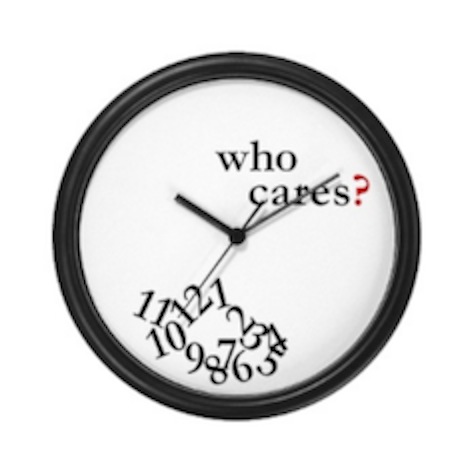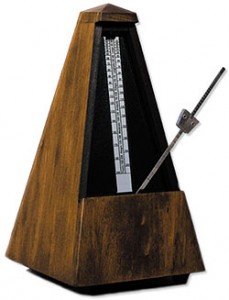
There are many things that we do not fully understand. Time is one of those things. Our contemporary view of time as having three parts – past, present and future – is not the only way that people have seen time. The notion of the three phases of time arose with the Greek language. Back in the time when the Greek empire dominated much of western civilization the use of the Greek language supplanted other languages, some much more ancient, that generally used two tenses. Instead of a past, present and future, these earlier languages expressed time by indicating only things that were ongoing and things that were completed. These future and non-future language wasn’t the only two-tense languages. There were also two tense languages that did not have a future. The past and not past languages may have arisen in the Pacific Islands. An ancient form of Japanese uses that form of two tense. The two-tense languages were able to express complex thought, philosophy and religion, had dramatic poetry and fully developed literature.

The three tenses that the Greek language are dominant in modern languages, but are not exclusive. There are languages that have no expressions of tense or time, including Burmese, Dyirbal and some ancient forms of Chinese languages. There are other languages that go the other direction. Kalaw Lagaw Ya, a language used by some Australian Aboriginals, has six tenses: remote past, recent past, today past, present, today/near future, and remote future.
Then you can get into conditional tenses. There are ways to use language to indicate what might, but not necessarily, will happen. All of the constructs of language to express time are an indication that there are different ways of viewing time.
While technological machines such as the metronome, clocks and other devices attempt to measure time as a constant; we do not experience it in that way. Our sense of the amount of time varies, depending on what activity occupies that time. An hour stuck in traffic feels longer than an hour playing with a grandchild. A week of vacation has a different temporal feel than a week waiting for results from medical tests.
An entire blog could be devoted to different interpretations of time in music. The topic of the proper speed for the playing of Bach, for example is far from clear. The metronome markings that Bach himself wrote are incredibly fast and there are a lot of theories about what he really intended and what speed the music should be played. And we all enjoy the artistry of musicians who are able to bend time just a bit, stretching out notes so that they are not mechanically precise, but rather interpreted.
Astronomers use observations of the motions of stars and planets as their cue to the measurement of time. Days, seasons, and years are marked by the earth’s revolutions and its rotation around the sun.
Philosophers tend to use another measurement of time – the amount of time remaining in the span of an individual’s life. Since we all die, the amount of time we have left has a philosophical quality. That time, however, is unknown. The span of individual lives varies by decades.
Recently there have been a lot of articles about the lengthening of human life. It is often assumed that the youngest generation of humans will live longer than their parents and grandparents because of advances in medicine. This has been true for several generations in the developed world. While it once was the case that living more than 40 years was considered to be an achievement, we now see people living well into their 80’s and individuals who live past 100. Scientists are predicting that infants in today’s world can live into their 120’s.
Brain research has yielded some significant information about the process of aging. A recent article published in the journal “Nature” explores the hypothalamus as the control of the process of bodily deterioration we call aging. A team of scientists claim that they can speed up or slow down aging in mice by activating or inhibiting the brain signaling molecule NF-kB in the hypothalamus. The researchers have also discovered a hormone that seems to be a key to understanding and perhaps manipulating the process of aging.

There is no indication of how humans might employ extra years if they were to have expanded lifetimes. Would it just mean more years of retirement? Would increased years of gainful employment create job shortages and contribute to unemployment? What is the role of increased lifespan in the overpopulation of the planet? Along with increased life span, many cultures now exhibit increased adolescence. The journey to adulthood takes longer than once was the case. The ancient traditions of our people declared a youth to be an adult at age 13. These days, there are plenty of thirty-somethings who still demonstrate adolescent behaviors.
I think that part of our questions and confusion about life span lies in our inability to truly understand time. The texts of our faith indicate that the flow of time is entirely different from a divine perspective than that of humans. The psalmist declares, “A thousand years in thy sight is but as a watch in the night.” John’s vision understands Christ as the alpha and omega – the beginning and ending of all that is. Our creation stories indicate that God existed before time. If God is present in every moment, than time had an entirely different meaning. We get a few glimpses of that perspective from some of the stories of our people. Jesus’ transfiguration, for example, is an experience of past and present being simultaneous. Moses, Elijah and Jesus lived in different times, but they are revealed together in a single time and place.
I am convinced that our perception of time is a temporary phenomenon. It is important to us in this life, but of no meaning when we die. The time of our life is a preparation for what is yet to come. The length of a life is important only from our temporal perspective. The distinction between the death of an infant and the death of a centurion is insignificant from the divine perspective.
The question is not how much time we will be allotted, but rather what we will do with the time that we have.
Copyright © 2013 by Ted Huffman. I wrote this. If you want to copy it, please ask for permission. There is a contact me button at the bottom of this page. If you want to share my blog a friend, please direct your friend to my web site.




